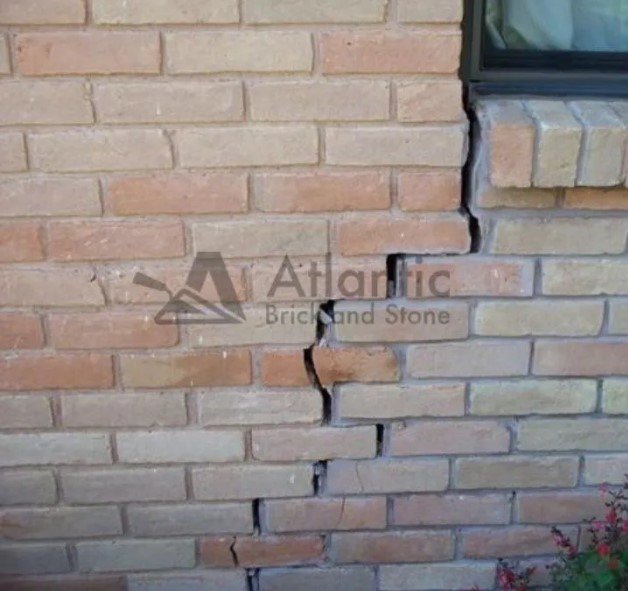You’ve noticed some odd cracks forming in your home’s foundation walls and basement floors. On closer inspection, you realize they’re arranged in a distinctive stair-step pattern. These are called stair-step cracks, and as the name implies, they form at an angle looking similar to the risers of stairs. So are these stair-step cracks something you need to seriously worry about, or are they just minor, superficial issues? Let’s take a deeper look at what causes stair-step cracks and when they indicate more serious structural problems with your foundation.

Stair-step cracks get their name from their distinctive stair-like pattern where the cracks appear one above the other in successive steps. They typically form at a slight diagonal angle through foundation walls, basement floors, and porches or patios supported on grade beams or perimeter walls. The cracks run from the bottom upward at roughly a 45-degree angle.
Understanding what might be causing the cracks can help gauge their severity. Common causes include:
Uneven soil conditions, with some portions containing more compressible clay or fill, can lead to differential settling. This uneven settling strains foundation materials and forms stair-step cracks. Lateral deflection also occurs when one area of the foundation wall bends or bulges outward compared to adjacent sections.
Wet concrete or mortar shrinks slightly as it dries, which can lead to stair-step cracking patterns. Repeated heating and cooling of foundation walls from temperature changes produces expansion and contraction, leading to diagonal cracking over time.
Strong ground shaking from seismic events or intense construction vibrations can induce stair-step cracks if the foundation lacks flexibility. Pile driving and soil compacting close to the structure can also transmit vibrations.
Construction errors such as insufficient reinforcement, incorrect mix design for concrete, or improper compaction of fill can result in increased movement over time, leading to stair-step cracks. Foundation walls that are too short or lack lateral bracing are especially prone to cracking.
Several factors help determine the seriousness of stair-step cracks and whether they require repair:
Wider cracks are riskier than hairline cracks as they indicate greater movement. Cracks over 1/4 inch wide suggest extensive differential foundation movement below. Cracks forming a V-shape on the surface may indicate more serious issues.
Cracks near corners experience added strain due to abnormal rotation or twisting, making them more prone to further enlargement. Foundation corners already experience more stress, so cracks in these locations often correspond to more substantial foundation defects.
Older masonry homes with rigid walls are more sensitive to cracks because their materials do not adjust well to movement. Cracks in older homes are often red flags for foundation instability developed over time.
Slow cracks reflect minor settling that the structure has accommodated, while quickly enlarging cracks suggest ongoing movement that could compromise structural integrity.
Minor hairline cracks can be sealed by foundation contractors using flexible crack sealants that expand and contract with foundation movement. Epoxy crack bridging fills and bonds cracks to prevent water infiltration temporarily while monitored.
For active cracks 1/4 inch or wider in critical load-bearing areas, structural solutions may be needed. Concrete crack injection by foundation specialists uses epoxy under pressure to fully penetrate and lock cracks. Underpinning transfers structural loads around problem areas to stable soil with piers, anchors, or subsurface walls. Polyurethane foam crack injection can also stabilize cracks to prevent widening. A trained foundation repair specialist can evaluate and recommend the right repair.
Atlantic Brick and Stone is an expert masonry repair contractor serving Fredericton and surrounding areas. With over 15 years of experience, we handle everything from small crack repairs to full foundation underpinning projects. For an honest inspection and free quote, contact us today. Our masonry professionals can evaluate your stair-step cracks and develop a tailored plan to resolve any related foundation issues.
Minor isolated stair-step cracks in basement floors or foundations are common over time. Factors like crack size, location, growth rate, and other foundation signs help determine the level of concern. Routine maintenance and managing water can reduce significant cracking chances. Consult a professional if cracks become substantial or rapidly change, as active foundation movement could make the structure vulnerable. Staying proactive ensures early detection before expensive repairs are needed.
GET STARTED
Create stunning structures with our residential and commercial masonry services in Fredericton. From meticulous designs to the completed build, our process is professional and rewarding, and we can’t wait to build your dream with you.
Atlantic Brick and Stone, one of the best masonry contractors in Fredericton, NB
Contact
8 Muskie Street, Lower Kingsclear, New Brunswick E3E 0E7, Canada